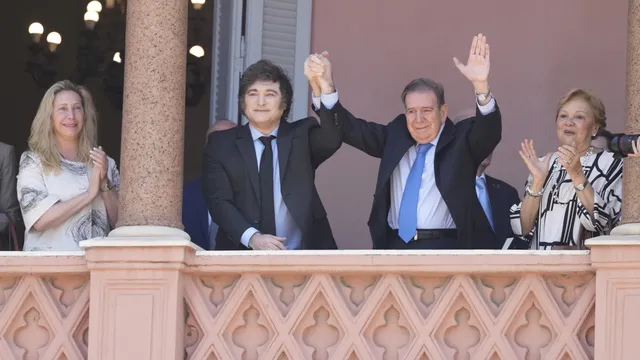
Venezuela offers $100,000 reward for information on opposition leader Edmundo González
2025-01-05 00:00- Edmundo Gonzáalez claims to have won the July 2024 presidential election in Venezuela, contesting the official results that declared Nicolás Maduro the winner.
- Venezuela's government issued a $100,000 bounty for information about Gonzáalez's location just days before Maduro's inauguration on January 10, 2025.
- Gonzáalez is currently on an international tour to gather support as he plans to return to Venezuela and attempt to assume the presidency.
Express your sentiment!
Insights
Venezuela has witnessed a tumultuous political climate, particularly since the July 28, 2024, presidential election where Edmundo Gonzáalez, the opposition candidate, claimed victory over incumbent Nicolás Maduro. While the National Electoral Council reported Maduro had won with around 51.2% of the votes, the opposition contended that they gathered evidence indicating Gonzáalez had actually received approximately 70% of the votes. Following the elections, Gonzáalez fled to Spain after an arrest warrant was issued against him due to alleged conspiracy charges stemming from the electoral process. Despite being granted asylum in Spain, Gonzáalez has been vocal about his intention to return to Venezuela, positioning himself as the legitimate leader despite Maduro's claim to the presidency. As the date of Maduro’s inauguration on January 10, 2025, approaches, tensions have escalated. In a show of defiance and determination, the Venezuelan government announced a $100,000 bounty on Gonzáalez for information regarding his whereabouts just days before this critical date. This move has intensified the political theater as both sides rally support domestically and internationally. Gonzáalez has begun a Latin American tour, including a meeting with Argentine President Javier Milei, a prominent critic of Maduro. During this tour, he is expected to garner additional support for his cause and possibly strategize on how to return to Venezuela effectively, where he claimed a significant voter base during the election. The international community largely views the elections as rigged and has rallied behind Gonzáalez. Countries like Argentina have expressed solidarity with him, granting him assistance while Maduro's regime continues to resist external pressure to validate its electoral victory. The lack of transparency in the electoral process has resulted in accusations against Maduro’s administration, further complicating the political landscape. Protests and civil unrest have been notable in the aftermath of the election, with human rights violations reported amidst the crackdown against dissent. The disparity between internal political authority and public support for the opposition reflects a growing divide in Venezuelan society. As Gonzáalez prepares for a potential return, the actions taken by Maduro’s government, including the announcement of the bounty and measures to stifle dissent, could lead to further instability. This situation underscores the precarious nature of Venezuelan politics where international involvement and domestic clout intersect. Through a combination of diplomacy, public support, and a quest for legitimacy, Gonzáalez remains determined to confront the barriers that limit true democratic governance in Venezuela.
Contexts
On July 28, 2024, the Venezuelan people cast their votes in a deeply contested presidential election, one that many believed was marked by a lack of fairness. Nicolás Maduro, who had been in power since 2013, aimed to extend his reign while the opposition, civil society, and several international observers expressed serious concerns about the electoral process. After decades of political turmoil, the election coincided with the birthday of the late Hugo Chávez, a tactic seen by opponents as a clear attempt to leverage an emotional connection to the former president's legacy. As the votes were tallied, reports emerged suggesting a landslide victory for the opposition candidate, Edmundo González Urrutia. The opposition claimed ownership of tallies from 84 percent of polling stations that indicated widespread support. However, the National Electoral Council's (CNE) reported numbers raised eyebrows, as they suggested the opposite. The gap between the two sides' figures led to a shadow of doubt that hung over the election's legitimacy, sparking debate in international circles and calls for transparency. In the days that followed, geopolitical tensions escalated. Venezuela expelled diplomats from several countries, leading to a withdrawal of diplomatic personnel and strained relationships. Countries like Peru and Uruguay condemned the Venezuelan government's actions as grave and disproportionate, reflecting the intricate web of international politics entwined with the election's aftermath. On August 2, the CNE released its final bulletin, claiming Maduro had secured over 51% of the votes. Nevertheless, opposition leaders and independent observers insisted the numbers were highly improbable, suggesting that the real victor was González Urrutia. Political analysts debated the significance of the results and what they meant for the future of democratic governance in Venezuela, leaving the world anxiously awaiting a resolution to the country's ongoing crisis.